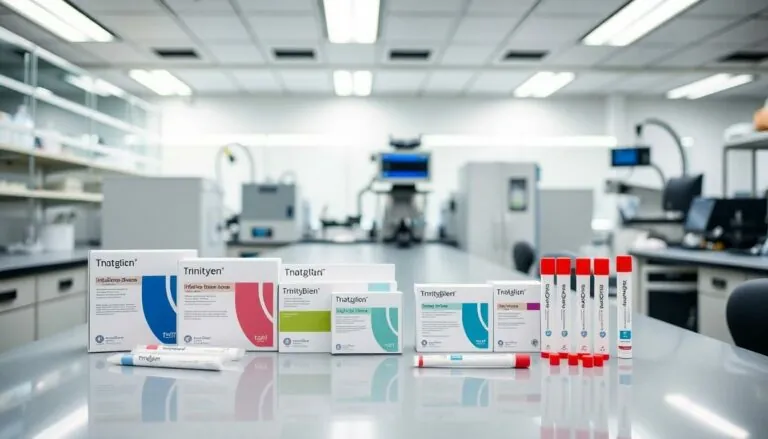Table of Contents
ToggleIn a world where gadgets seem to multiply faster than rabbits, consumer electronics engineering services are the unsung heroes making it all happen. They’re the wizards behind the curtain, turning wild ideas into sleek devices that fit right into our daily lives. From smartphones that can practically read our minds to smart fridges that know when we’re out of milk, these engineers are shaping the future one circuit at a time.
Overview of Consumer Electronics Engineering Services
Consumer electronics engineering services encompass a wide range of activities crucial for developing innovative devices. These services include product design, prototyping, testing, and manufacturing support. Engineers in this field apply their technical expertise to create user-friendly gadgets that meet market demands.
Product design involves turning concepts into functional blueprints. Engineers collaborate with clients to understand specific requirements and create viable products. Prototyping allows for testing ideas and refining designs before full-scale production. This iterative process helps mitigate risks and ensures product viability.
Testing services play a significant role in assuring quality and compliance. Engineers conduct various assessments, including performance testing, safety evaluations, and regulatory compliance checks. Such evaluations are essential to validate that products meet industry standards and consumer expectations.
Manufacturing support contributes to the efficient production of consumer electronics. Engineers provide guidance on selecting materials, optimizing production processes, and ensuring cost-effectiveness. Their involvement helps to streamline operations and reduce time-to-market.
Additionally, engineering services address design for manufacturability, which focuses on creating products that are easy to assemble and maintain. By considering these factors early in the design phase, engineers can improve the overall product lifecycle.
Consumer electronics engineering services not only facilitate the development of cutting-edge technology but also enhance market competitiveness. With a strong emphasis on innovation, these services continue to shape the future of consumer electronics, driving progress across various sectors.
Key Components of Consumer Electronics Engineering

Consumer electronics engineering services comprise essential activities that drive innovation and development in technology.
Product Design and Development
Product design starts with ideation and concept development. Engineers focus on user experience and functionality, ensuring products meet market demands. They create detailed specifications that guide the engineering process. Utilizing advanced software, they generate 3D models and simulations to visualize the end product. Feedback from stakeholders during this phase leads to iterative improvements, contributing significantly to design refinement. Considerations regarding aesthetics, usability, and manufacturability play crucial roles in creating practical solutions. Collaborating with industrial designers and marketing teams further enhances the alignment of the product with consumer needs. Thus, effective product design lays a solid foundation for successful engineering.
Prototyping and Testing
Prototyping involves creating functional models that represent the final product. Engineers use these prototypes to evaluate design performance, identify flaws, and test features. Rapid prototyping techniques enable quick iterations, facilitating necessary adjustments based on testing outcomes. Testing includes performance assessments, durability evaluations, and compliance checks with industry standards. Rigorous assessment during this stage ensures that products meet safety regulations and quality benchmarks. Client collaboration remains pivotal in refining prototypes to align with expectations. After addressing all design concerns, the final prototype leads to an efficient transition into manufacturing. Hence, thorough prototyping and testing enhance the reliability and success of consumer electronics products.
Importance of Consumer Electronics Engineering Services
Consumer electronics engineering services play a vital role in the tech industry. These services contribute significantly to product development and market advancements.
Enhancing Product Quality
Engineers focus on product quality through meticulous design and rigorous testing. They employ advanced software programs to create detailed specifications, ensuring that every aspect meets high standards. Each prototype undergoes extensive evaluation, allowing engineers to identify and correct any flaws before production. Testing adheres to safety regulations and industry benchmarks, which bolsters reliability and customer satisfaction. Comprehensive feedback from users and stakeholders informs ongoing design improvements, highlighting the commitment to quality in every stage of development.
Reducing Time to Market
Streamlining processes is crucial in reducing time to market. Engineers utilize rapid prototyping techniques, enabling quick adjustments and faster validation of design concepts. They collaborate closely with clients to define clear objectives and focus on efficient project timelines. By optimizing manufacturing processes, engineers minimize delays while maintaining quality standards. Teams also implement design for manufacturability principles, ensuring products are easier to assemble and maintain. This strategic approach accelerates product launches, enhancing competitive advantage in the rapidly evolving consumer electronics landscape.
Trends in Consumer Electronics Engineering Services
Consumer electronics engineering services adapt to emerging technologies and evolving market demands. Key trends include the integration of IoT technology and a strong focus on sustainability practices.
Integration of IoT Technology
IoT technology has transformed consumer electronics products. Engineers design devices that connect seamlessly with each other and the internet, enhancing user convenience. Smart home products exemplify this shift, allowing users to control appliances remotely. Real-time data collection leads to improved product functionality and personalized user experiences. Additionally, engineers prioritize security protocols to mitigate risks associated with IoT devices. This comprehensive approach ensures that products meet the demand for interconnected living environments.
Sustainability Practices in Engineering
Sustainability practices have become a core principle in consumer electronics engineering. Companies implement eco-friendly materials and energy-efficient designs to reduce environmental impact. Engineers strive to minimize waste throughout the product lifecycle, from design to disposal. They also adopt practices that promote recyclability and energy conservation. Collaborative efforts with suppliers and manufacturers ensure compliance with sustainability standards. This commitment not only appeals to environmentally conscious consumers but also aligns with regulatory requirements across various markets.
Consumer electronics engineering services are essential for driving innovation in today’s technology-driven world. These skilled engineers play a pivotal role in transforming concepts into tangible products that meet consumer needs. Their expertise in design, prototyping, testing, and manufacturing not only enhances product quality but also accelerates time-to-market.
As trends shift towards IoT integration and sustainability, these services will continue to evolve, ensuring that devices are not only functional but also environmentally friendly. By prioritizing user experience and compliance, they lay the groundwork for a future filled with advanced, interconnected gadgets that enrich daily life. The impact of consumer electronics engineering services will only grow as technology advances, solidifying their place as key players in the industry.






